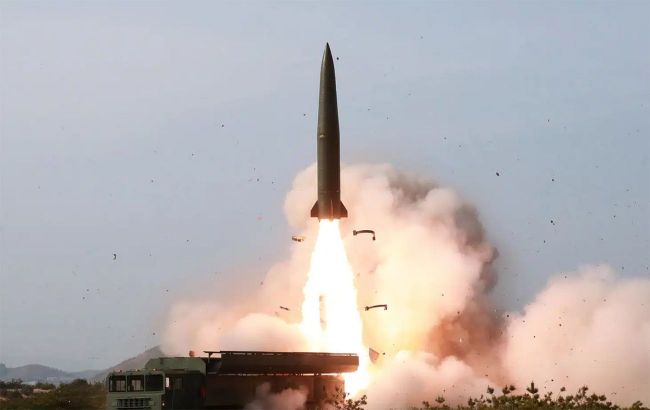North Korea successfully tests new hypersonic ballistic missile
 Photo: South Korea believes that the DPRK's achievements are less than stated in the report (missilethreat.csis.org)
Photo: South Korea believes that the DPRK's achievements are less than stated in the report (missilethreat.csis.org)
North Korea successfully tested a new intermediate-range hypersonic ballistic missile on Monday. North Korean leader Kim Jong Un attended the launch, reports Reuters.
The launch marked North Korea's first missile test since November 5. It coincided with the visit to South Korea by US Secretary of State Antony Blinken, during which he pledged bilateral and trilateral cooperation, including with Japan, to respond to growing military threats from Pyongyang.
The missile was launched from the outskirts of the North Korean capital and flew approximately 1,500 kilometers at a speed 12 times faster than the speed of sound. It reached an altitude of nearly 100 kilometers before descending to a "second peak" of 42.5 kilometers and maneuvering to land precisely on a target near the eastern coastline.
South Korea's military stated that the report from KCNA was likely exaggerated. They estimated the missile's flight range at about 1,100 kilometers, noting that no "second peak" was observed. A detailed analysis will be conducted jointly with the United States. The term "second peak" refers to the missile potentially altering its course and maintaining altitude rather than descending along a ballistic trajectory.
According to KCNA, new composite carbon fiber materials were used in the missile's propulsion section. Reuters notes that carbon fiber is lighter and stronger than other aerospace materials, such as aluminum, but is more difficult to produce.
KCNA's report stated that the missile could "effectively penetrate any dense defense barrier and inflict a serious military blow on the opponent."
The report also included photos of Kim Jong Un observing the launch via video conference with his young daughter, as well as images of the missile taking off from the testing site.
Kim described the missile as a powerful weapon against security threats posed by hostile forces and a volatile regional situation.
Notably, Blinken, during his visit to South Korea, warned about the dangers of deepening ties between Pyongyang and Moscow. He stated that Russia plans to transfer space and satellite technology to North Korea. In exchange, North Korea would provide support in the war against Ukraine, where over 1,000 North Korean soldiers have already been killed.

